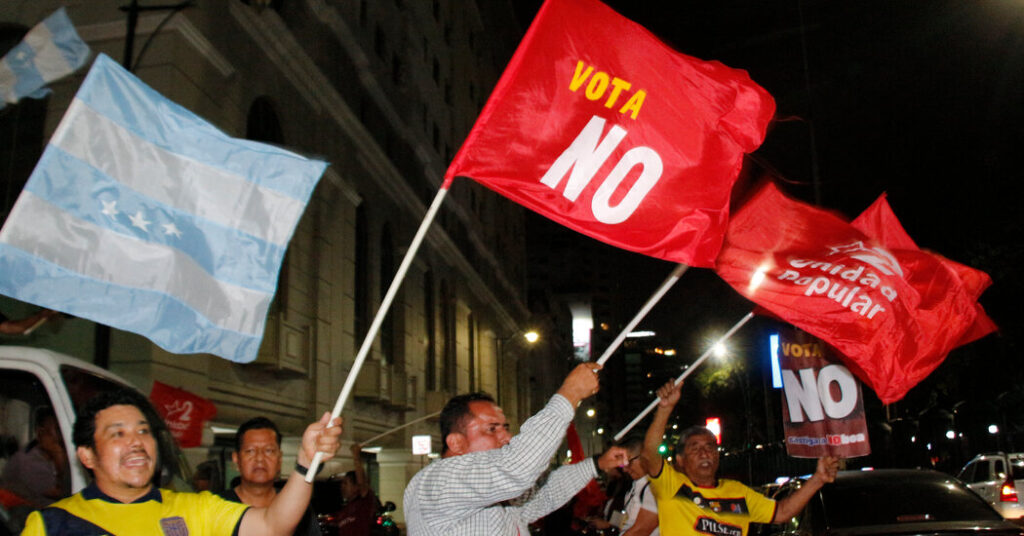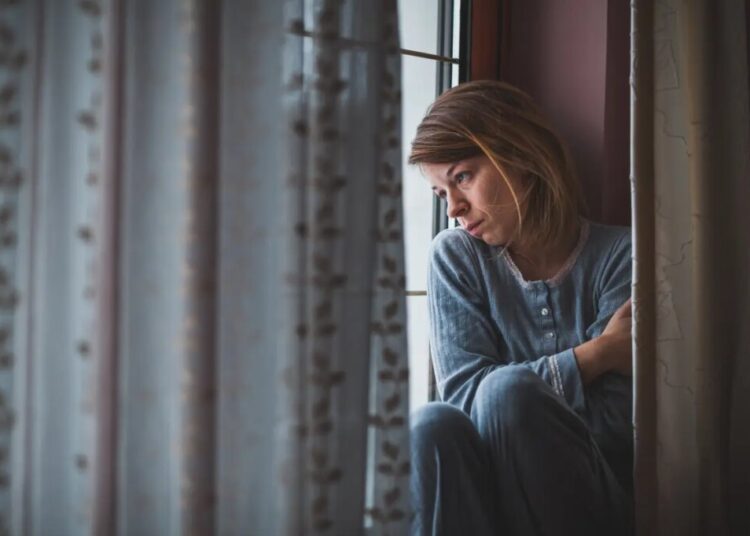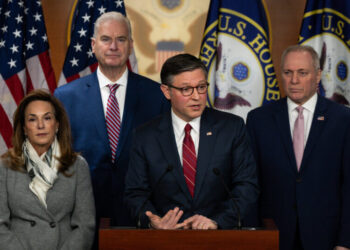President Daniel Noboa of Ecuador has spent months courting Washington. He has met with President Trump at Mar-a-Lago; formed an alliance with the Blackwater founder Erik Prince, a Trump supporter; and pressed to allow U.S. military bases in Ecuador.
But voters at home delivered Mr. Noboa a sharp rebuke.
They soundly rejected a national referendum on Sunday that he had backed, aimed at authorizing a foreign miliary presence in Ecuador. With more than 98 percent of ballots counted, 61 percent opposed the measure.
The vote comes as the region has been roiled by the intensifying U.S. military campaign against boats the Trump administration claims are smuggling drugs.
The American military has launched 21 strikes that have killed at least 83 people, though U.S. officials have yet to provide evidence that the boats were ferrying drugs. Many legal experts say the attacks violate international law.
Still, analysts said the rejection of the referendum in Ecuador reflected not necessarily unhappiness with the U.S. military campaign but rather widespread distrust and dissatisfaction with Mr. Noboa himself.
Once seen as an oasis of peace in South America, Ecuador has had an explosion in drug violence in recent years, which Mr. Noboa campaigned on tackling. But after his two years in office, homicides are rising, and many prisons are effectively controlled by gangs. Some analysts predict that this year could become the most violent in Ecuador’s history.
Various crises have heightened a sense that the government is incapable of containing violence and providing basic services. The problems include clashes set off by cuts to government fuel subsidies, which left three civilians dead; a series of urban explosions; three prison massacres; and a worsening medicine shortage.
“He didn’t lose because of Trump — he lost for promising transformation without administrative credibility,” said Pamela León, an analyst based in Guayaquil. “The decisive message was domestic.”
Mr. Noboa, who has not said anything publicly about the U.S. airstrikes, had argued that an American military presence in the country would help his government fight criminal organizations.
Under Rafael Correa, who was president from 2007 to 2017, Ecuador’s relations with the United States deteriorated, and he expelled American military forces. Analysts say the expulsion undermined border security and allowed transnational drug traffickers to expand their operations.
Ecuador’s constitution prohibits foreign military bases and requires a referendum to change this.
In September, Mr. Noboa hosted the U.S. secretary of state, Marco Rubio, who pledged to provide $20 million in security aid, including for drones. This month, Mr. Noboa and Kristi Noem, the U.S. homeland security secretary, toured sites for potential U.S. military bases.
Just days before the vote, he signed an agreement with the United States to reduce tariffs on U.S. imports in exchange for the United States’ removing levies on some Ecuadorean exports.
Ecuadoreans generally value good relations with the United States, but many voters seemed to believe that the referendum lacked clear plans for improving security, said Caroline Ávila Nieto, an Ecuadorean political analyst.
Mr. Noboa has raised taxes to help finance his plans for reducing violence, Ms. Ávila said, but the security problem has worsened.
The president has also offered confusing messages about the proposed U.S. military base, including proposing a location in the Galápagos Islands. That alarmed many Ecuadoreans who consider the islands, a biodiverse tourist attraction, a source of national pride.
Mr. Noboa also recently pushed through tax-amnesty legislation that essentially erased a decades-old tax debt owed by his family’s banana-exporting business, a move that critics said undercut his credibility. Mr. Noboa is from one of Ecuador’s wealthiest families, and its empire was built on bananas.
The outcome was a sharp reversal for the 37-year-old president, who surged unexpectedly in the polls to win a shortened presidential term in 2023. Last year, he won broad public backing in a referendum for a separate package of security changes.
In April, he won a decisive re-election, relying on a law-and-order platform, a deft command of social media to project an image of youth and vigor, and a plea that he needed more time.
“The honeymoon period has ended; the public is no longer giving him that space or trust,” said Glaeldys González Calanche, who researches Ecuador for the International Crisis Group. “Now people want to see change and results. The narrative of needing more time is no longer resonating.”
Genevieve Glatsky is a reporter for The Times, based in Bogotá, Colombia.
The post Ecuador Votes No to Hosting U.S. Military Base appeared first on New York Times.




